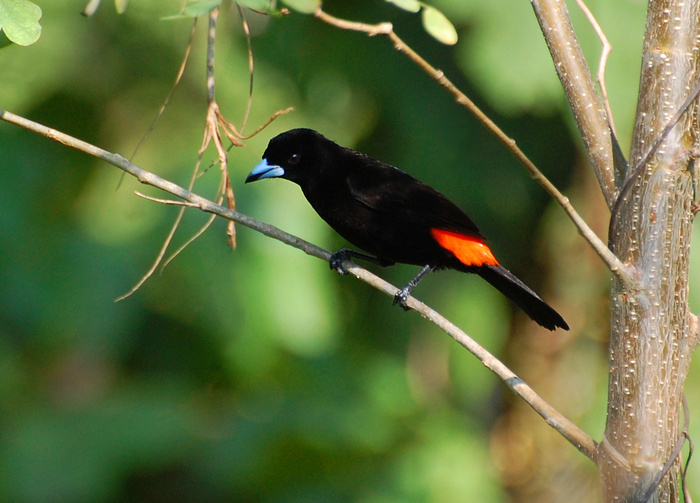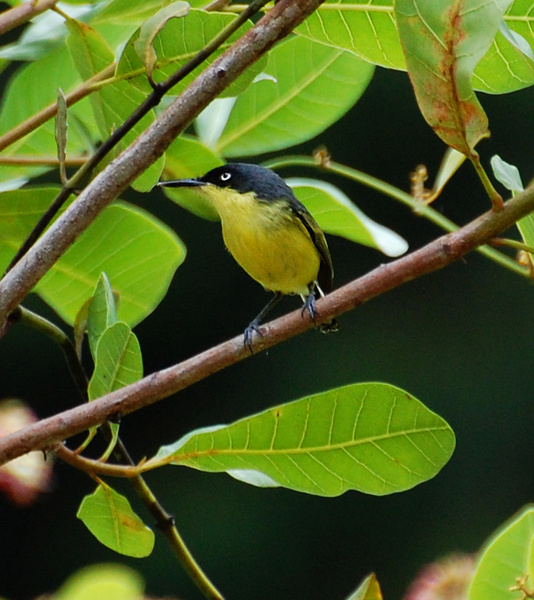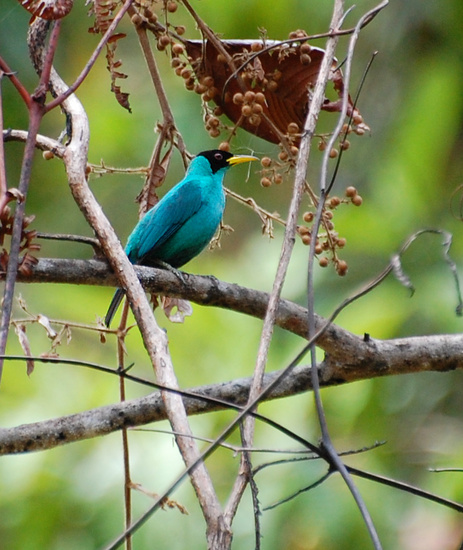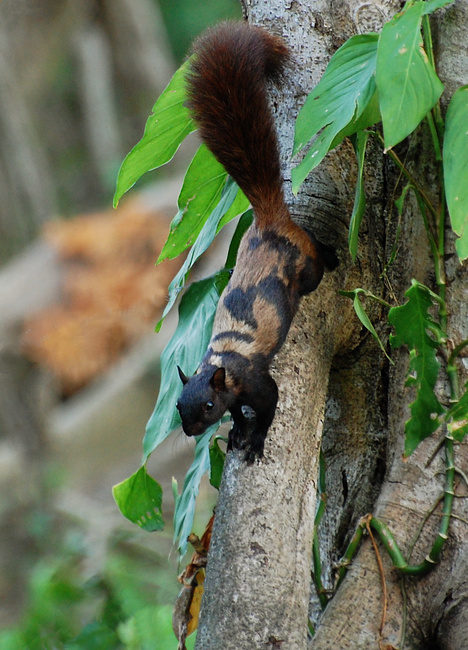
Naranjito and Esquipulas with Johan Chaves (part 2)
April 13th, 2014
A familiar face:

1680x1050 wallpaper
This deep-golden beauty is a Prothonotary Warbler, a North American bird, wintering in the tropics as most warblers do. Prothonotaries are abundant breeders at Dutch Gap, one of my favorite birding spots when I visit my folks in Virginia. They nest in tree holes (or manmade nest boxes) in wetland habitat. I found this one to be especially tame. In fact I find a lot of Costa Rican birds especially tame, as if they know they are in a peaceful country!

There are over two hundred types of tanagers in the Americas, nearly all of whom are restricted to the tropics--probably something to do with their love of fruit. Like our own Scarlet Tanagers (a species I'm still trying to get one good photo of to this day), most of them seem to be deep woods birds who stay well up in the trees and shun open spaces, which is unfortunate given their often stunning beauty. Cherrie's Tanagers were a pleasant exception to the rule. I saw them frequently both during our tours and around the resort.

Common Tody-Flycatcher
The striking pale eye on a dark face is distinctive, making this one of the few easily identified flycatchers.

Green Honeycreeper
If you've been following along closely, the above bird might look familiar to you. I photographed one in better detail at the Biodome a few years ago. Since this was my first wild sighting, it was a lifer. There are three types of honeycreepers in Costa Rica, all of whom specialize in drinking nectar.

Variegated Squirrel
These squirrels vary widely in color and pattern, thus the name. I found this one particularly handsome.
April 13th, 2014
A familiar face:

1680x1050 wallpaper
This deep-golden beauty is a Prothonotary Warbler, a North American bird, wintering in the tropics as most warblers do. Prothonotaries are abundant breeders at Dutch Gap, one of my favorite birding spots when I visit my folks in Virginia. They nest in tree holes (or manmade nest boxes) in wetland habitat. I found this one to be especially tame. In fact I find a lot of Costa Rican birds especially tame, as if they know they are in a peaceful country!

There are over two hundred types of tanagers in the Americas, nearly all of whom are restricted to the tropics--probably something to do with their love of fruit. Like our own Scarlet Tanagers (a species I'm still trying to get one good photo of to this day), most of them seem to be deep woods birds who stay well up in the trees and shun open spaces, which is unfortunate given their often stunning beauty. Cherrie's Tanagers were a pleasant exception to the rule. I saw them frequently both during our tours and around the resort.

Common Tody-Flycatcher
The striking pale eye on a dark face is distinctive, making this one of the few easily identified flycatchers.

Green Honeycreeper
If you've been following along closely, the above bird might look familiar to you. I photographed one in better detail at the Biodome a few years ago. Since this was my first wild sighting, it was a lifer. There are three types of honeycreepers in Costa Rica, all of whom specialize in drinking nectar.

Variegated Squirrel
These squirrels vary widely in color and pattern, thus the name. I found this one particularly handsome.
| ← | → |

dagibbs
April 14th, 2014 at 10:48 am
The pattern on the squirrel is neat.
Mike
April 14th, 2014 at 11:30 am
Camo-pattern squirrels are neat... good catch!
Really like the Prothonotary and the Honeycreeper... the composition on the latter works well even though the bird's not as prominent in the shot.